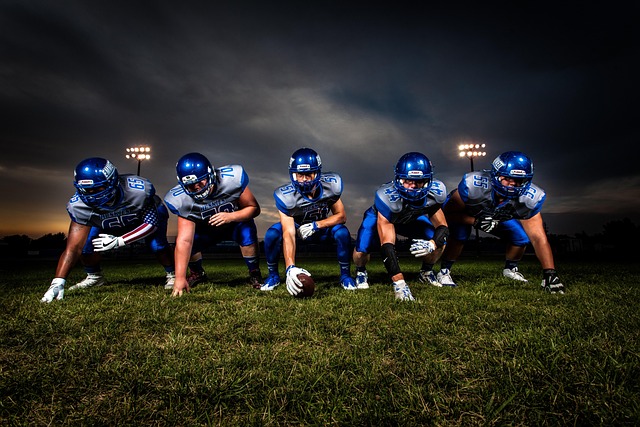Balancing academics and athletics can be a demanding task for student-athletes. As a former student-athlete myself, I understand the challenges that come with juggling the pressures of both worlds. In this article, I’ll share valuable mental strategies to help student-athletes navigate the academic and athletic arenas with confidence and success.
When striving for excellence in both academics and athletics, it’s crucial to develop a strong mindset that fosters resilience and focus. I’ll delve into practical tips on time management, goal setting, and stress management techniques tailored specifically for student-athletes. By implementing these strategies, student-athletes can optimize their performance both on the field and in the classroom.
Join me as we explore the mental strategies that can empower student-athletes to strike a balance between their academic pursuits and athletic endeavors.
Challenges Faced by Student-Athletes
Navigating the demands of academics and sports can be overwhelming for student-athletes. Here are some common challenges they often encounter:
Juggling Academics and Sports Commitments
I find that one of the most significant challenges for student-athletes is managing their academic responsibilities alongside their rigorous sports commitments. It’s essential to balance practices, games, and fitness training with coursework, assignments, and exams. This juggling act requires impeccable time management skills and a proactive approach to stay on top of both academic and athletic requirements.
Pressure to Excel in Both Arenas
Student-athletes face immense pressure to perform exceptionally well both in the classroom and on the field. Balancing the expectations of coaches, teachers, and peers can create a high-pressure environment where student-athletes feel the weight of excelling in academics and sports simultaneously. This dual pressure can lead to stress, anxiety, and burnout if not managed effectively. Developing strategies to cope with this pressure is crucial for maintaining peak performance in both academic and athletic pursuits.
Importance of Mental Health for Student-Athletes
Being a student-athlete comes with its own set of unique challenges that can significantly impact one’s performance both on the field and in the classroom. As someone who has navigated these challenges firsthand, I understand the crucial role that mental health plays in ensuring student-athletes can excel in both their academic and athletic pursuits.
Impact of Stress and Anxiety on Performance
The pressure to juggle rigorous academic demands with the intense physical requirements of sports can lead to heightened levels of stress and anxiety among student-athletes. These mental burdens not only affect one’s overall well-being but can also have a direct impact on performance. When overwhelmed by stress, it’s difficult to focus, make decisions, and perform at peak levels, hindering success both academically and athletically.
Benefits of Mental Fortitude
Developing mental fortitude is essential for student-athletes to navigate the challenges they face effectively. By cultivating resilience, determination, and a positive mindset, student-athletes can better cope with setbacks, handle pressure situations, and stay motivated to achieve their goals. Mental strength not only enhances performance but also fosters overall well-being, enabling student-athletes to thrive in all aspects of their lives.
Strategies for Balancing Academics and Athletics
Balancing academics and athletics requires effective strategies that optimize performance in both areas. Here are some essential approaches to help student-athletes manage their responsibilities efficiently.
- Time Management Techniques
Prioritizing tasks, creating schedules, and utilizing time wisely are key elements in successful time management for student-athletes. Breaking down study sessions into smaller intervals and setting specific goals for both academics and athletics can enhance productivity. Additionally, using tools like planners and digital calendars can help in organizing daily activities and ensuring that neither academics nor sports are neglected. - Importance of Setting Priorities
Setting clear priorities is crucial for student-athletes to allocate time and energy appropriately between academics and athletics. By identifying the most important tasks and commitments, individuals can focus on what truly matters, avoiding unnecessary distractions. Understanding the significance of each academic assignment and sports event allows student-athletes to make informed decisions about where to invest their efforts, leading to a balanced and successful lifestyle.
Useful Mental Techniques for Student-Athletes
When it comes to enhancing performance as a student-athlete, implementing effective mental strategies can be just as important as physical training. In this section, I’ll delve into two crucial mental techniques that can help student-athletes excel both in academics and athletics.
Visualization and Goal Setting
Visualizing success and setting clear, achievable goals are powerful tools for student-athletes. By mentally rehearsing a successful performance or envisioning themselves reaching specific milestones, athletes can enhance their confidence and motivation. As a student-athlete, I regularly visualize myself scoring a goal or acing an exam, helping me stay focused and determined towards my objectives.
Creating SMART goals—specific, measurable, attainable, relevant, and time-bound—can provide student-athletes with a roadmap for success. For instance, setting a goal to improve running speed by 10% in the next three months allows athletes to track progress, stay motivated, and celebrate achievements along the way. By applying visualization techniques and setting clear goals, student-athletes can boost their performance and manage their commitments effectively.
Relaxation and Mindfulness Exercises
In the demanding world of academics and athletics, finding moments of relaxation and practicing mindfulness can significantly benefit student-athletes’ mental well-being. Engaging in relaxation techniques, such as deep breathing exercises or progressive muscle relaxation, can help reduce stress levels and improve focus during high-pressure situations. I often incorporate deep breathing exercises into my routine before competitions to calm my nerves and enhance my concentration.
Mindfulness practices, such as meditation or mindful walking, enable student-athletes to stay present in the moment, enhance self-awareness, and manage distractions effectively. By taking a few minutes each day to practice mindfulness, student-athletes can improve their mental resilience, regulate emotions, and perform at their best in both academics and sports. Integrating relaxation and mindfulness exercises into their routine can provide student-athletes with valuable tools to navigate challenges and optimize their performance.

 Chelsea Haynes is a valued member of the Awesome Football Network team, where she excels as a skilled contributor and article writer. With a sharp eye for detail and a deep love for football, Chelsea produces compelling content that covers a diverse range of topics, including team dynamics, player performances, and game strategies. Her insightful articles are crafted to engage and inform readers, providing them with a deeper understanding of the sport.
Chelsea's expertise and dedication to football journalism enhance the quality of content at Awesome Football Network. Her contributions help keep the platform at the forefront of football news, ensuring that fans and professionals alike stay well-informed and connected to the latest developments in the world of football.
Chelsea Haynes is a valued member of the Awesome Football Network team, where she excels as a skilled contributor and article writer. With a sharp eye for detail and a deep love for football, Chelsea produces compelling content that covers a diverse range of topics, including team dynamics, player performances, and game strategies. Her insightful articles are crafted to engage and inform readers, providing them with a deeper understanding of the sport.
Chelsea's expertise and dedication to football journalism enhance the quality of content at Awesome Football Network. Her contributions help keep the platform at the forefront of football news, ensuring that fans and professionals alike stay well-informed and connected to the latest developments in the world of football.
